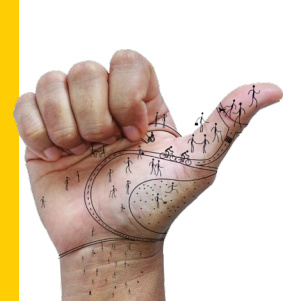There are two primary areas for action here: increasing
the numbers of women and feminists in UN leadership,
and protecting women’s rights across the system. On
leadership, despite evidence of the value of, as well
as ambitious goals for, equitable representation of
women at all levels of the UN, the numbers remain
disheartening, and progress remains slow. It took a
decade for an increase in the overall representation of
women by a mere 5 percentage points.
Patriarchal and unwritten rules perpetuate a culture
within the UN system of colonialism, racism, sexism,
and ageism. Gender-based violence, sexual exploitation
and abuse have been poorly addressed throughout the
system, including when perpetrated by and against UN
staff, as well as in its programmatic and operational
activities. In the absence of a robust, efficient, credible
and fair justice process, UN staff members – particularly
women who are junior and administrative staff and
gender non-conforming staff members – are left in
the same kinds of vulnerable situations that the UN is
supposed to help countries change. The UN has a wide
set of existing policies to ensure that equal access and
representation within the UN system, but many are not
followed. The new Secretary General must articulate
internal processes to uncover, document, and transform
this culture, setting-out time-bound goals that will
be implemented in every UN agency and body, and
reported on publicly:
- Š On day 1, use the opportunity of the resignation of all ASecretary Generals/USecretary Generals to change the status quo and achieve parity.
- Establish gender parity in the Cabinet: the Senior Management Team, members of the Policy Committee, and in the members of the Chief Executives Board for Coordination (CEB) should all be gender equal (in particular the Deputy SecretaryGeneral, the Chief of Staff, the Spokesperson, the chief Speechwriter, the Political Advisor and the members of the Senior Appointments Unit). Š
- Call for nominations for strong female, feminist candidates ahead of upcoming agency leadership transitions for the World Health Organization and UN Population Fund, as well as UN treaty bodies. Š
- Within 100 days, announce a set of gender-equitable employment practices and respect for care work system-wide, including flexible working hours, realistic expectations of work hours and work-life balance, paid family leave for people of all genders, and zero tolerance for sexual harassment and other forms of gender-based violence at work, among others.
- Š Articulate and implement employment pathways that do not rely on working at non-family duty stations, which disproportionately preference men. One idea would be instituting 6-month tours of duty in non-accompanied posts with support for child care in the home country. Š
- On day 1, institute/update and enforce a zero tolerance policy for all acts of violence, not only sexual exploitation and abuse,2 committed by any UN staff, peacekeepers, etc. Š
- Ensure senior leadership is fully on board with the zero tolerance policy so that they both enforce it and model good behavior. Senior leaders who fail to take action on or who cover up GBV in their organizations or teams should be sanctioned. Š
- Introduce performance monitoring for officers that is linked to the zero tolerance policy and show swift action in the face of any allegations. Š
- Immediately enforce policies that protect individual whistleblowers and/or agencies that create internal processes who denounce unequal hiring and promotion practices, sexual harassment, and gender discrimination broadly, as well as member state capture of staff positions. Š
- Within 60 days, appoint a high-level designee tasked an internal audit, compiling existing UN policies on human rights, equality, fairness, and non-discrimination, and create a framework for implementing them moving forward. Š
- Immediately institute a global commission of inquiry, rooted in the view of, and answerable to the people who have been abused. Š
- Within 30 days: begin an audit of UN justice systems and processes from a gender perspective. Use this to reform the system, strengthen protection and ensure confidentiality for staff members who experience sexual harassment or any form of gender-based discrimination. Š
- Within 90 days: Hold a town-hall meeting with UN staff to publicize existing polices, articulate enforcement and accountability measures, and disclose the results of the internal audit.






















